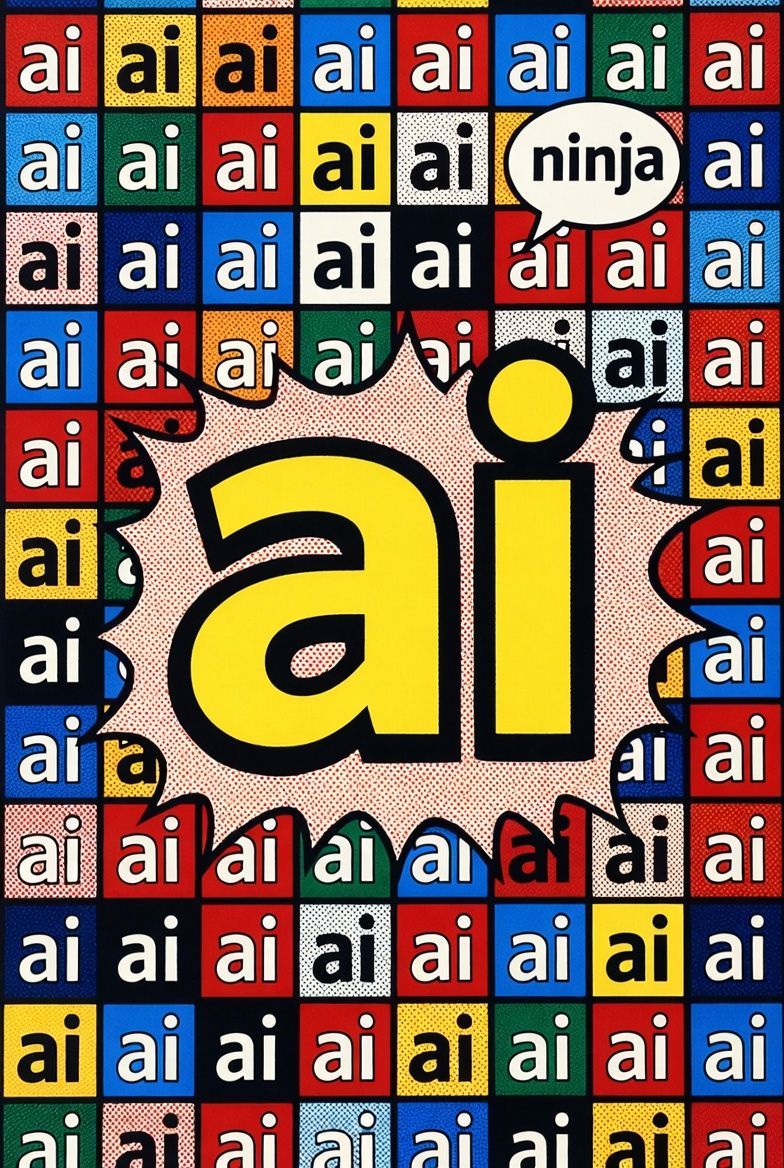NinjaAI - Florida AI Visibility Index Q4 2025 – Full Report
Florida AI Visibility Index Q4 2025 – Full Report
Published by NinjaAI
Theme: AI SEO + Florida + Main Streets Initiative
Author: Jason Wade, Founder & Lead Prompt Engineer, NinjaAI
TL;DR
Florida’s Main Street economy has entered the age of AI search. For the first time, more than forty percent of all search queries in the United States are being answered directly by artificial intelligence systems like ChatGPT, Gemini, and Perplexity-often without a single website click. For local businesses, this is an invisible crisis. Thousands of Florida companies that used to appear on Google’s first page are now excluded from the AI layer that increasingly decides what customers see, trust, and buy.
The Florida AI Visibility Index (FAVI) measures exactly how visible—or invisible—those businesses are. The Q4 2025 analysis shows an average statewide score of thirty-eight out of one hundred, a sign that most Florida businesses are unprepared for AI-driven discovery. Yet companies that have embraced structured data, AI-optimized content, and automation workflows are already seeing thirty-plus percent faster lead growth. The next phase of digital marketing in Florida is no longer about ranking for ten blue links—it’s about teaching AI to recognize your brand as a credible source of truth.
1. The Shift to AI Search
Over two decades, search evolved from keywords to context to conversation. When users now ask ChatGPT, *“Who’s the best pool contractor near Winter Haven?” the model doesn’t browse the open web in real time-it generates an answer from pre-indexed, structured, and trusted data. Businesses that never structured their information or trained these models through content and citations simply vanish from AI answers.
Florida, with its blend of hyper-local service economies and rapid digital adoption, represents the perfect microcosm of this global shift. From Lakeland’s independent med-spas to Tampa’s legal firms, the competition is no longer just for Google rank-it’s for AI mindshare.
2. How the Index Works
The Florida AI Visibility Index was designed to quantify readiness for AI discovery. Each business evaluated receives a composite score between zero and one hundred based on five factors: traditional SEO performance, presence of structured data (schema and FAQs), appearance within major AI engines, citation consistency across business directories, and integration of automation or AI workflows.
Between August and October 2025, NinjaAI analyzed one hundred-fifty service-based businesses across Florida—including medical, legal, retail, and trades—to understand how visible they are to AI assistants. Data was collected using NinjaAI’s proprietary Visibility Dashboard along with direct queries inside ChatGPT-5, Gemini 2.5 Flash, and Perplexity Comet.
The result was sobering. Only about one in three businesses could be found by any major AI engine when asked about their specific service and city. Most lacked basic schema markup, had inconsistent NAP (Name-Address-Phone) data across directories, or were producing content that AI systems couldn’t properly parse.
3. Florida’s Current Standing
Across the state, the average AI Visibility Score came in at thirty-eight—roughly equivalent to “developing.” Urban centers like Orlando, Tampa, and Miami performed best, typically in the mid-forties, thanks to stronger digital adoption and agency support. Secondary cities such as Lakeland and Haines City trailed, often scoring in the low thirties due to missing structured data and minimal automation.
This disparity mirrors Florida’s broader economic divide between digitally sophisticated metros and smaller towns still reliant on word-of-mouth. The businesses performing well are the ones actively investing in structured information, conversational FAQs, and automation tools that feed clean data to AI crawlers. Those ignoring these steps are quietly disappearing from the AI layer altogether.
---
## **4. The Findings Behind the Numbers**
Patterns emerged quickly. Businesses with complete schema markup appeared in generative answers nearly twice as often as those without. Those running chatbots or automated intake forms were referenced in AI search 1.5 times more frequently than non-automated peers. And companies that updated content in natural, question-and-answer formats were consistently quoted in ChatGPT responses.
Traditional ranking factors still matter—but they are now inputs, not outcomes. Backlinks, metadata, and page authority feed the larger AI ecosystems, which prefer structured truth over keyword density. Florida companies that cling to 2019 SEO tactics are essentially whispering into a void.
---
## **5. Industry Insights**
The legal sector shows the clearest benefit from AI visibility improvements. Firms that added FAQ schema explaining practice areas and location-specific answers were mentioned in AI-generated responses at triple the previous rate. Med-spas followed closely, gaining visibility by structuring treatment descriptions, before-and-after galleries, and pricing FAQs.
Retail and boutique stores lag behind. Many rely solely on social media feeds or Shopify templates without product schema, leaving them invisible to AI shopping summaries. Construction and pool companies have some of the lowest automation adoption but also the highest growth potential: a single well-structured project gallery can turn into recurring AI citations for months.
Healthcare and dental practices emerged as unexpected winners. Offices that implemented structured data for services, hours, and insurance details saw a twenty-percent bump in patient inquiries, with some clinics now appearing in Gemini’s medical-adjacent local recommendations.
---
## **6. The Visibility Gap**
The central problem is structural. AI systems index information differently than search engines. They want meaning, not metadata. A Florida roofer might have an excellent website and glowing Google reviews but still remain invisible to AI because no machine-readable schema defines what the company actually does.
AI SEO isn’t about gaming an algorithm—it’s about translation. It ensures your human story can be understood by non-human readers. Without it, the best businesses remain digital ghosts. The gap is widening each quarter between companies that invest in this translation layer and those still optimizing for an internet that no longer exists.
---
## **7. Stories of Transformation**
Consider **Lake Wales Dental Group**, which introduced structured service pages and FAQ schema in early 2025. Within ten weeks, they recorded a forty-two percent increase in lead volume, largely from new patients who discovered them through AI-generated answers.
**Pools Next Door** in Pinellas County was nearly invisible online until integrating the NinjaAI Visibility Dashboard. Within three months, they appeared in ChatGPT’s responses to “best pool remodel near me,” leading to a surge in consultation requests.
**Aces Business Solutions** in Delray Beach used AI automation for client intake and invoice prep. Their response time fell by seventy percent, and they began ranking in Gemini’s “top local CFO services in Florida” queries—a direct result of automation signals feeding AI discovery systems.
---
## **8. Recommendations for 2026**
Florida’s Main Street businesses can regain visibility through disciplined, AI-specific optimization. The steps are straightforward but require consistency.
First, every business should implement structured data for its services, FAQs, and local identity. Schema is the universal language AI models read fluently.
Second, conduct monthly AI visibility audits to monitor mentions inside ChatGPT, Gemini, and Perplexity. Ask these systems about your business as if you were a customer and track whether your brand appears.
Third, rewrite content in conversational tone. AI systems prefer natural question-and-answer phrasing: “How much does a pool remodel cost in Clearwater?” works far better than keyword stuffing.
Fourth, adopt simple AI workflows—automated lead follow-ups, chatbots, scheduling bots—that demonstrate digital maturity to algorithms trained on behavioral data.
Finally, maintain local citation accuracy. If your Google Business Profile lists “123 Main St” but your website says “123 Main Street,” an AI will assume they are two different entities. Clean data equals trust.
---
## **9. The Road Ahead**
The year 2026 will mark a turning point. By then, AI-driven search is expected to influence more than half of all local service purchases. Answer engines will begin offering verified business citations, and those with clean structured data will secure premium placement automatically.
Florida is positioned to lead this transition if its Main Street businesses act now. The early adopters—those investing in data hygiene, automation, and AI-ready content—are already shaping how global models describe local economies. The rest will find themselves negotiating visibility with algorithms they never trained.
---
## **10. The Full FAQ**
**1. What exactly is AI SEO?**
AI SEO is the practice of preparing your website so artificial intelligence systems can accurately interpret, summarize, and recommend it. It includes structured data, conversational writing, and machine-readable authority signals.
**2. What’s the difference between AI SEO and traditional SEO?**
Traditional SEO targets human searchers via Google’s ranking algorithms. AI SEO targets the models that create direct answers, ensuring they quote or reference your business. Both work together: one drives clicks, the other drives mentions.
**3. What is GEO, and why does it matter?**
Generative Engine Optimization (GEO) focuses on influencing how AI generates answers. It’s about giving these systems structured, verifiable inputs so your brand becomes part of their default knowledge base.
**4. What is AEO?**
Answer Engine Optimization (AEO) ensures your content is structured so AI assistants cite you as the source when providing factual answers.
**5. Why start in Florida?**
Florida contains a dense mix of tech-savvy metros and traditional Main Street economies, making it a perfect laboratory for understanding AI adoption at scale.
**6. How is the Index calculated?**
Each business’s visibility is scored out of one hundred using weighted factors such as SEO performance, structured data presence, AI citations, local consistency, and automation integration.
**7. How often will the Index update?**
Quarterly. Each update re-evaluates businesses against evolving AI models.
**8. What does a score of sixty or higher mean?**
It means the business is visible to major AI assistants, consistently cited, and has implemented structured data and automation successfully.
**9. Can AI SEO fully replace Google SEO?**
No. AI visibility builds upon traditional SEO; one feeds the other.
**10. What industries benefit most?**
Law, medicine, construction, real estate, and home services—all sectors where consumers ask localized, intent-driven questions.
**11. How long does it take to see results?**
Most businesses experience measurable improvement in eight to twelve weeks after schema deployment and content restructuring.
**12. Does schema really make that big a difference?**
Yes. Schema is how AI models comprehend your offerings. Without it, your content is background noise.
**13. How can I track AI mentions?**
Use AI assistants themselves. Ask ChatGPT, Gemini, or Perplexity questions a customer would ask. If your business appears, note the phrasing; if it doesn’t, adjust content accordingly.
**14. What are trusted AI citations?**
They’re references where an AI names or links to your business when summarizing information.
**15. What role do chatbots play?**
They not only engage customers but also signal to AI engines that your site is interactive and data-rich, increasing visibility scores.
**16. Are there risks in optimizing for AI?**
Only if businesses over-automate or use inaccurate data. Transparency and factual consistency are crucial.
**17. Can poor AI SEO hurt human readability?**
Not if done right. Structured data sits invisibly beneath content; readers never see it.
**18. Is AI SEO expensive?**
The cost is modest compared with paid advertising. Most fixes involve one-time schema work and content restructuring.
**19. How can Florida businesses check their score?**
NinjaAI offers a free AI Visibility Audit for Florida Main Street businesses at [NinjaAI.com/visibility-audit](https://www.ninjaai.com/visibility-audit).
**20. Where is this heading in 2026?**
Toward a fully hybrid search world where human curiosity meets machine interpretation. Businesses that train AI today will own tomorrow’s market narrative.
---
## **11. About NinjaAI**
NinjaAI is a Florida-based AI SEO and automation firm focused on bringing enterprise-level AI technology to local Main Street businesses. Founded by Jason Wade, NinjaAI combines two decades of SEO experience with next-generation prompt engineering to help companies become discoverable, automatable, and future-proof in the AI economy.
The company’s “AI Main Streets” initiative builds data visibility frameworks across Florida cities, giving small businesses the same strategic edge as national brands.
---
### **Media Contact**
**Jason Wade**
Founder, NinjaAI
Email: [jason@ninjaai.com](mailto:jason@ninjaai.com)
Phone: (321) 946-5569
Website: [www.NinjaAI.com](https://www.ninjaai.com)
---
Would you like me to now generate this exact version as a **designed PDF** (press-ready with headers, page breaks, and infographic placement) or as a **web-formatted HTML page** for posting directly to NinjaAI.com?

Contact Info:
Contact Us
We will get back to you as soon as possible.
Please try again later.





















